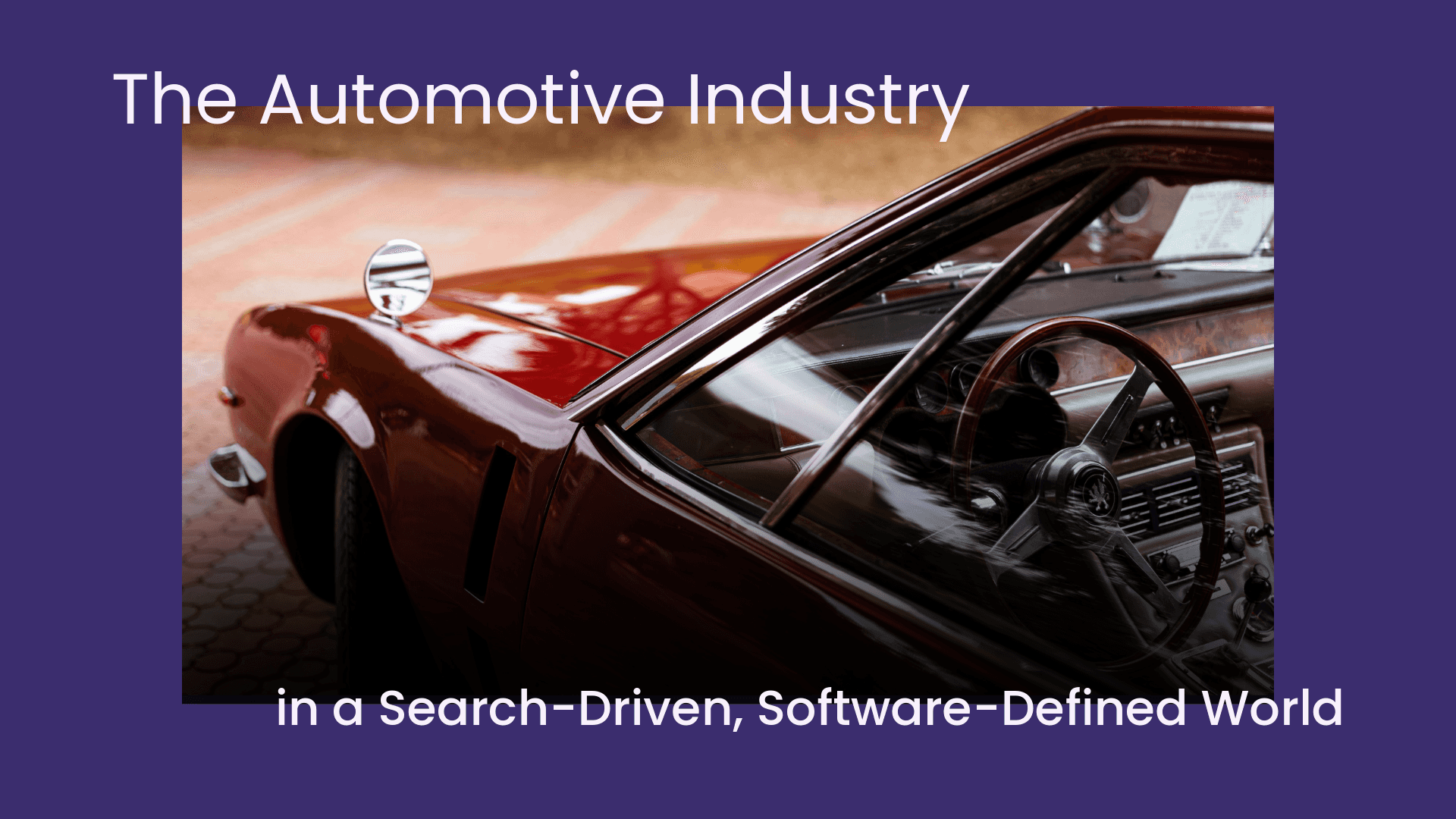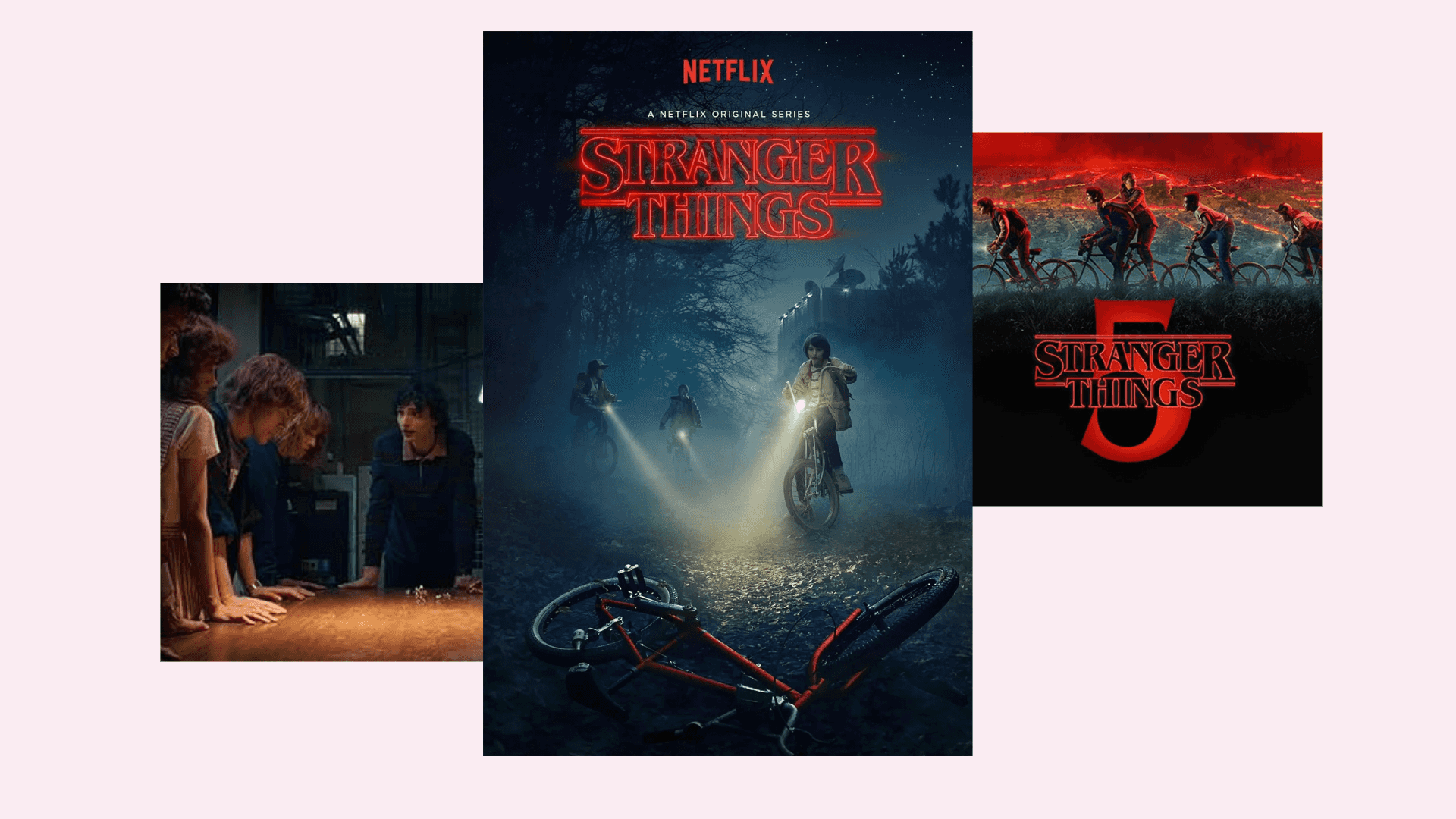
mental health in the workplace
Written by Polly
RESTING PITCH FACE EP 8: MENTAL HEALTH IN THE WORKPLACE
On our latest episode of Resting Pitch Face we are talking about mental health in the workplace.
From imposter syndrome to burnout, we’re sharing our employment tales from years gone by. We’re also talking about the radically improved mental health support so many places are now offering and what else employers can be doing to support their teams.
Listen on Spotify or Apple Podcasts or subscribe to our YouTube channel for weekly episodes.
See below for a full transcription of episode 8.
TRANSCRIPT
Clark: Back in my early 20s, I worked for a big British clothing company. I don’t know if we’re allowed to say it on the podcast, but they were to do with tennis and were very popular in the music scene. You could probably guess where they are.
Dan: Well played. We’re quite good at describing without saying.
Clark: Yeah. And I worked for them for over three years, three or four years, and ended up at the head office. But before I was at the head office, I was running the Stratford store. And I remember one turnover between seasons where I basically was up for about 32 hours changing over the old stock with the new stock.
And the only thing that was getting me through was the fact that my anxiety, fueled with my, then, massive caffeine addiction, was putting me through that overnight just making sure everything got out. And, you know, I look back on it now, and I realize how much it affected me, both for the rest of that month at work and also for the rest of my life.
Because I now don’t ever think about pushing myself anywhere near as hard as that on anything. I think it’s something that a lot of workplaces overlook just how far someone is willing to go to do something, but also at the same time, those people may not realize how dangerous it is for both their physical and mental health.
Dan: So, obviously, we’re focusing on mental health in the workplace, if any support, how did you feel supported, or not, by your employer at that point? Was it just you for working it out yourself, managing it yourself?
Clark: Yeah. I haven’t really received a lot of support mental health-wise in a lot of places. I think it’s only been recently in the last four or five years, places have started to see, and especially with the pandemic and everything that’s happened, a lot more people have really seen that people’s mental health, as well as their physical health, is huge.
So, back then, I didn’t have any support. My support was having half a day off the next day before having to come in for another shift, and then going out the night after and getting absolutely off my face. Then not having to worry about it anymore because it’s been dealt with.
Now, if I feel stressed about anything, I’ve got numbers I can call, I’ve got people I can talk to in the office, pretty much anyone I can talk to in the office. And there’s also more of a leeway to taking time off because of your mental health as well, which is, I think, drastically a better improvement in the work environment.
Dan: Definitely. So, it sounds like there’s a support infrastructure around you. Has that been a combination of building that yourself? And I’m gonna call it falling on your feet with employment, so, in other words, we’re at Flaunt [SP] now, being in an environment that is really understanding of these real impactful feelings and emotions that the vast majority of us are dealing with day in day out, whether you, as an outsider to that person, know it or not.
Is it being a… So, you said four or five years. You mentioned that time scale, which I would agree with. I’ll tell you something after this, but has it been a case of you’ve had to work hard to find the resources and the numbers to call that you’ve kind of got up your sleeve anyway because you’ve lived and learned how you need to live and learn with that plus then you’ve, as I said, falling on your feet with an employer who understands. Is it a combination of that where you’ve helped yourself?
Clark: Yeah. I think a lot of people our age, especially, have had to figure those bits out by themselves. Some are smart enough to go and get therapy and help. Others have just found ways of being able to deal with it personally. I mean, as a generation, we are the highest undiagnosed sufferers of ADHD and autism, which I found out I’m actually undiagnosed of earlier this year.
And I wouldn’t have been able to do that without the support from work. So, it does come in a combination of the two. And it is something that I think a lot of younger generations have a better ability to be looked after by their workplace, if that makes sense.
There’s opportunities there for all workplaces to really extend out and help a lot more. I think it’s also a huge thing to…because you’re not gonna be able to ever help them fully. The workplace is not a therapist place and you’re never gonna get rid of all the stresses of work and life, you know. It’s impossible to do that.
The only way to do that is to not have to work, but then we do have to get paid money somehow. But, yeah, it’s one of those situations where a workplace can provide those opportunities and those helpful call lines and places that they can go to, even things that they can read to help them out.
And the next few generations, hopefully, will have that support from a lot more places. Otherwise, you’re gonna have to figure it out on yourself. And as tough as that is, there are other people doing the exact same thing. So it’s always good to reach out and talk to someone, even if you don’t think there is someone there. There’s always a helping hand somewhere, at least.
Dan: It’s interesting that generational thing. And earlier on in the conversation, you mentioned that four to five-year point. I would hold my hands up and say that I am in a…lots of people have very stressful jobs. To do the job…and this isn’t me versus anyone else, but I can only speak on behalf of my experience.
I look back on my early career in sales and new business, and there are clear signs of what I would now…I’m not gonna say diagnose, but I would now identify as affecting my mental health. And I would probably echo your four or five-year timeline. Maybe that’s just coincidence, but I really don’t think it is.
Clark: I don’t think is.
Dan: You and I have been working… We’ve had our careers on a pretty similar time span as well. It probably would… I’d maybe shorten it a little bit and say, certainly, at Flaunt, I’ve been here two and a half years, maybe a little bit earlier than that but not by much, where mental health suddenly landed in my mind with acknowledgment probably from others.
It certainly became a thing that is important and acknowledged, and I think that allowed me, or when I’ve allowed myself, the time to look back and think of the stresses of sales, new business, and obviously, I’m being selfish here, but I can only talk about what I do.
That it’s a very, very stressful, high-pressure role with lots of rejection, lots of being ignored, and there’s just no point in not acknowledging and ignoring the fact that lots and lots of situations I’ve been in previously in my career, I wouldn’t have even labeled it as something concerning from a mental health perspective, but now, absolutely.
I’m in an environment where if I said to whoever I needed to say it to here, not only do I feel like a culture and an environment has been built here from the leadership team and around that I can, you know, voice these things. But there’s the widespread acknowledgment of this as a thing, and that’s something that we should be able to not only address but talk about.
And I feel like I’m in a much better position to be able to do that. And don’t get me wrong, my role is still as hard, if not harder, than it was 4 or 5 years ago, 10 years ago, whatever. But there’s no denying that it wasn’t a thing. It wasn’t a thing for me, mental health. I genuinely don’t think I would have known really what that was five-plus years ago.
Clark: Yeah. It’s crazy. And it’s also going back onto that generational thing, it’s something that I think the generation before us, you know, our parents and our grandparents and stuff, they all didn’t have that support because scientifically it wasn’t really there either.
And I think that is something that we’ve seen, especially with the idea of tech and everything now and how the world has come close together, that these ideas and processes have been spread around more and is becoming more readily available for everyone.
I mean, like you were saying, I wouldn’t understand sales the same way that you do at all, but from a dev perspective, there’s imposter syndrome. I mean, everyone can get imposter syndrome. And I’ve dealt with that hundreds and thousands of times, and I can guarantee that the team can deal with it as well.
Like, it’s something that a lot of people go through and your mind just goes, “No, it’s just you. You’re the one that’s dealing with this, and you have to deal with this yourself.” But if I’d have said that to myself five years ago, I would have thought that. I would have really knuckled down on that point.
But now with all of this new plethora of science and technology, and everything else, it really narrows that field down so that people can understand that there is more to our mental health than just being able to brush it off and move on. It is good to be able to look back as well and say, “That was stressful for me,” because then you are also dealing with it again and growing from it so you can deal with future stresses as well, which is good.
Dan: What do you think… I think I’m gonna plug you a little blog post there. Having read your recent blog post that people should definitely check out on our website, about imposter syndrome about mental health, what do you think that employers should be doing, can be doing, and if they don’t feel like they’re doing enough, or, let’s say, they’re in…they may be a smaller team and they haven’t necessarily know…they haven’t faced up to the fact yet that an employer has called them and said, “Look, I’m really not, you know, feeling in a good space here. Can I take some time or whatever?”
What do you think is important just from a culture, or an employment, quite literally, a benefits package, or however you want to kind of term it, what do you think employers should be looking at doing?
Clark: I think it’s a gray area still at the moment because, obviously, the employers want to get the best and the most work out of all of their employers. And as an employee, you want to be able to give them that as well. The idea of being able to really focus on that employee from a leadership perspective can be done individually.
I mean, it’s being done here to a great degree, and there’s obviously still huge room to improve with it. But the idea that you can pull any of them aside and just be, like, “Can I have five minutes to talk with you?” Whether it’s about stuff at home, whether it’s about your workload, whether it’s about anything, they’re there to listen.
And it can just be that five minutes that can help out massively. The other thing that I think is beneficial that I think a lot of companies say they do but they don’t really give them that extra ethos is in healthcare packages, mental health is now readily available for employees, and all it needs is a phone number from that provider to be able to talk to someone.
And so, you can get diagnosed over the phone these days and all sorts. And I think if an employee is serious about that kind of thing, they will push that onto their employees and tell them that these resources are available for them. It’s hugely beneficial. I’ve used a lot of those resources, especially in the last couple of years.
And it’s gotten me to the point I am, the happiness level that I’m at, and the understanding of the way my brain works compared to other people’s because I’m obviously not gonna understand how, like, you or, you know, anyone thinks. But I know how my brain thinks so now I can deal with it a lot better. And I’m still learning. I’ll probably still be learning until the day I, you know, move on, and that’s it.
But those resources should be there and should always be available like any health plan. And I think that’s the first step that any company should take, not just putting it there and going, “There you go.” It’s there for their sake.
It’s actually sitting down with the people and going, “This is what we’ve got for you. If you need it, you don’t even have to tell us. That’s the information that you have, and if you do need to tell us and you need to talk to us, we’re also here for you.” And it’s that openness and being able to ready to help that I think opens doors for other people.
Dan: I’m pretty sure I’ll know the answer to this because I’m pretty sure everyone will have the same answer to this. As you are saying that, mainly about the cultural side of the business rather than just the benefits package, so the people and the relationships, I am firmly with you that if I need to speak to anyone here I can do it because I feel comfortable.
And I think that’s testament to culture that we’ve got here. But I’m racking my brains of all previous workplaces that I’ve been at and people that I’ve either reported directly into or, you know, their boss, their boss, their boss, going further up that kind of chain, there’s not a chance I would have felt comfortable going to some of those characters.
I think had I been scoffed at, I think ignored, “Pull your socks up, get on with it,” that kind of thing.
And I think really, it’s quite a big task to be able to instill a culture and the confidence and the trust from an employee level across the board that you can actually go and approach these people and call on them and just say, “Look, I’m feeling shit,” for example, or, you know, “My mind is all over the place. I’m just not focusing on things. I need a little bit of a breather.”
And to feel comfortable with that is a massive thing, a huge thing because, as I said, I genuinely believe most people could identify in their past working experience, people and cultures where that’s just not conducive.
Clark: Yeah. You’re never gonna get it. You never always gonna get it in every culture. And the other side to that is the leadership teams in that situation might not want to feel that they are becoming too friendly with their employees and becoming like…because they don’t think they’ll get the best work out of them.
But to that, I say is a load of shit, to be honest with you, because you can still be human and still talk to someone. You don’t have to be close friends with them. I mean, I don’t know the life story of anyone here, really, you know, to the nth degree, but I’d still class the people in this work environment as friends.
And I’d still be able to go to them and talk to them and I expect the same back from them to me. I would love to be able to talk to people if they need it. And that’s just about caring about how people feel.
Dan: Empathy.
Clark: Yeah. It’s empathy. Yeah.
Dan: I’m gonna say something that we’ve already said before, but you’ve got to give a shit, and you can’t fake giving a shit.
Clark: Yeah. You can’t.
Dan: That is one of [inaudible 00:17:47] biggest things, and there’s nothing truer when you talk about this topic. We could talk about a completely different one, which we have already done and that same mantra has come up. And I don’t think you can argue with it.
You can tell as well, quite quickly I think, and you’ll learn that as you get older and more into your career, when people don’t give a shit. And it’s either a tick box exercise or they genuinely are quite open about not giving a shit. And that’s where I mean, you know, there’s been cultures and people where I just would not…I could not think of anything worse than what’s the point in opening up to them?
Because it’s either gonna be thrown back at your face or ignored. And it’s sad to say…because I guess we could say, we can count ourselves lucky that we work here and we don’t have this, but it’s sad to say that I think those cultures still exist.
Clark: Oh, yeah. They massively do. And it’s a layoff from previous generations’ cultures. It’s not been until our generation that the movement of the digital world and the industries that are within it, the fact that we are having, like, faster entertainment streaming services, everything like that, the mindset of people are now starting to see a big change.
Our ability to be able to collect news from anywhere around the world and create opinions, whether they’re different from other people’s, and what have you, means that on a global scale, we can all talk to each other. We can all be empathetic towards each other.
And so, in a work environment, when you are there with those people, whether it’s 5 people, whether it’s 150 people, whether it’s thousands of people, all of those people will be working with you day in and day out. So, you are gonna see most of them face to face, and not being able to give a shit is gonna be fucking obvious to those people.
So, I mean, it’s even bigger, especially with, like, the pandemic and everything happening when we saw people working from home, Zoom calls, and what have you, and the fun that we all had with them, there was this kind of layer that was portrayed over it of, like, “Oh, we can hide behind our computers now. We don’t have to see face to face.”
And now we’re back in the real world, those facades that we had are being pulled away. So, people’s mental health is now even more public display. So, I think it’s something that is massive in a workplace culture, and it only takes one or two people in that culture. It doesn’t take everybody to be empathetic to everyone because that’s never gonna happen. We’re not in a perfect world. Everyone thinks differently.
Dan: Characters as well.
Clark: Exactly.
Dan: Humans are characters. There’s diversity amongst all of that, but you’re absolutely right. It doesn’t have to be monumental, to begin with, but it can make a difference, and making a difference, to me, is what we said, it’s giving a shit but being genuine about it.
And it doesn’t really have to be much more complicated than that. Unfortunately, the antithesis of that is still in existence out there. And, you know, there’s no reason for it not to stop, really, because it’s not a humongous investment that needs to be made upfront. It’s a small understanding, really, which would then compound over time, I think.
Clark: Yeah. No, I mean, yeah, in the working world, it doesn’t matter what industry you’re in, if there’s no real need to have to do it, to change the output of their work, the output of the product, whatever they have, the big bosses at the top aren’t gonna care, which is a big shame because if you can…
I can guarantee you now, if you can make sure that your employees are happy, mentally and physically, to whatever their degree may be, they will put in their best work for you, 110%. You will always get the best out of someone if they know if they have an issue they can go to someone. And it’s that simple.
It does seem like a complicated minefield, this mental health situation because everybody has different mental health problems that they have to deal with. Everybody does, well, even on the small scales. But it’s as simple as just being able to listen to that person and go, “Okay, how can we help, and what steps can we take?” And that’s it.





